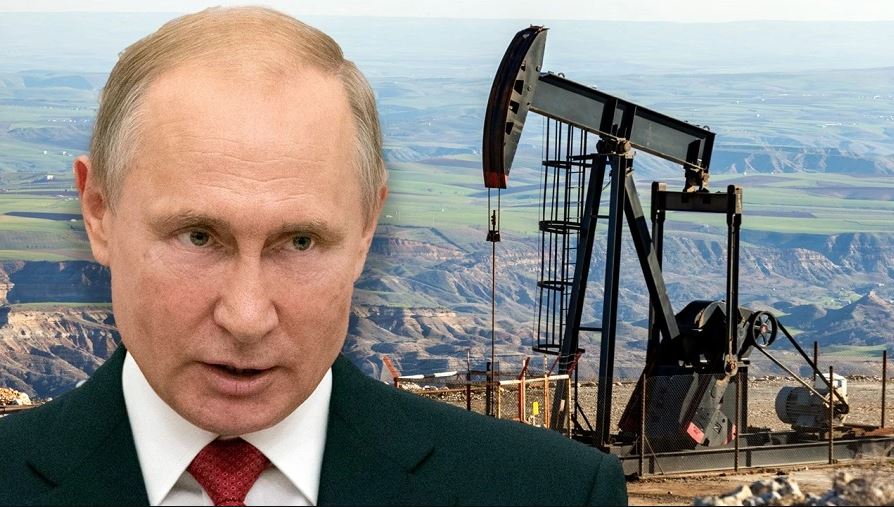Since Russia began its special military operation in Ukraine, the United States and other European nations have been reluctant to sanction Russia’s oil and gas exports. This is because the Western allies are concerned about the repercussions on Europe’s energy supply and skyrocketing oil and gasoline prices.
Although this concerns European nations and America, the possibility of sanctions on Russian energy exports is still not off the table as the war wages on. According to many analysts, if the West bans Russian oil, international crude prices could skyrocket to as high as $150 per barrel.
Although a sanction on Russian energy export could trigger high oil prices, however, in the event of no sanctions on Russian energy exports, prices are set to remain very high in these present conditions because buyers and refiners have taken it upon themselves to sanction Russia by not touching Russian crude and looking for alternative supplies.
Why oil could hit $150 per barrel
Although there is the possibility of an Iranian nuclear deal that would allow Iran to legitimately return to exporting its oil, which has the potential to slow down the price increase we are seeing in the oil market, however, barrels from the Islamic Republic cannot replace the loss of Russian oil, according to analysts.
RBC Capital analyst Helima Croft wrote in a note cited by Reuters on Thursday, “While some remain transfixed with the idea that an Iran agreement will provide much-needed relief (from rising oil prices), we again caution that the deal is still not done and the sums entailed would simply be too small to backfill a major Russian disruption.”
Even without sanctions on Russia’s energy exports, there is already disruption in Russian oil exports as Moscow meets mounting challenges in selling its seaborne crude and oil products, with traders, refiners, banks, insurers, and tanker owners unwilling to touch anything coming out of Russia.
Due to Russia’s invasion of Ukraine, we saw the U.S. and European nations impose sanctions on Russia in solidarity with Ukraine. Included in these sanctions, the Western allies decided to kick several Russian banks out of the international SWIFT system, putting Russia in a financial stone age.
This act alone also affects the Russian energy market. According to Amrita Sen, Director of Research at Energy Aspects, who told CNBC on Wednesday, “Because of the banking sanctions we’ve estimated about 70% of Russian crude oil exports can’t be touched. That’s about 3.8 million bpd.”
Russia exports around 5 million bpd of crude and 2.8 million bpd of refined products. Without sanctions, Russia’s crude and refined product exports have dropped by one-third, or by 2.5 million bpd, this week, according to estimates from Energy Intelligence based on shipping data and interviews with traders.
Due to Russia’s oil production capacity niche, sanctions on the country’s energy exports would have a much bigger effect on market balances compared to the sanctions on Iran and Venezuela of the previous years, analysts say.
According to John Kilduff, partner at Again Capital, interview with CNBC, he stated that the oil market seems to believe that sanctions on Russian oil are coming. He stated, “These are barrels that we cannot make up, so that’s why this market is on tenterhooks.”
We are also seeing that refiners have started to replace Russian crude. Some of the biggest U.S. importers of Russian crude oil have started suspending their purchases of the commodity, including Monroe Energy, the third-biggest U.S. buyer of Russian oil.
Neste Oyj, an oil refining and marketing company located in Espoo Finland said on Tuesday, “Due to the current situation and the uncertainty in the market, Neste has mostly replaced Russian crude oil with other crudes, such as North Sea oil.” They further stated that Neste is preparing “for various options in procurement, production and logistics.”
Bottomline
Surgutneftegaz, a Russian oil and gas company, hasn’t been able to award spot cargoes in three consecutive tenders over the past week, as no one is bidding even at the huge discounts of the Urals grade to Dated Brent.
Russian oil flows are already disrupted by the existing sanctions and even if direct sanctions on oil don’t follow, the market will struggle to replace barrels already lost to “self-sanctioning,” even if Iran returns to exporting crude soon.

